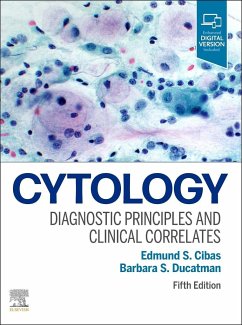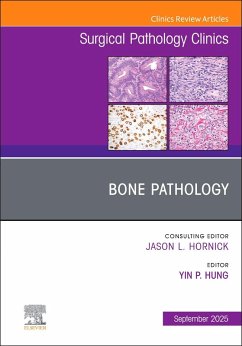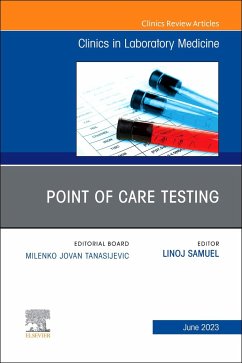
Uropathology
Versandkostenfrei!
Versandfertig in über 4 Wochen
257,99 €
inkl. MwSt.

PAYBACK Punkte
129 °P sammeln!
Designed for quick reference and efficient, accurate sign-outs, Uropathology, 2nd Edition, provides superbly illustrated, expert guidance in a time-saving format. This updated volume in the High-Yield Pathology series is highly templated for ease of use, featuring bulleted text, authoritative content, and high-quality images that comprehensively cover both non-neoplastic and neoplastic entities, making it easy to recognize the classic manifestations of urologic diseases and quickly confirm your diagnoses. 1. Provides in-depth, bulleted outlines for each entity covering definition, anatomy, and...
Designed for quick reference and efficient, accurate sign-outs, Uropathology, 2nd Edition, provides superbly illustrated, expert guidance in a time-saving format. This updated volume in the High-Yield Pathology series is highly templated for ease of use, featuring bulleted text, authoritative content, and high-quality images that comprehensively cover both non-neoplastic and neoplastic entities, making it easy to recognize the classic manifestations of urologic diseases and quickly confirm your diagnoses. 1. Provides in-depth, bulleted outlines for each entity covering definition, anatomy, and pathology: histology, immunohistochemistry, and differential diagnosis. 2. Features 1,600 high-quality illustrations that include gross, radiographic imaging, microscopic, immunohistochemical, and special stains, providing a comprehensive visual summary of the typical features of each entity. 3. Includes expanded information on tumor staging expertly provided by Dr. Ming Zhou, primary author of the College of American Pathologists cancer protocols. 4. Reflects recent guidelines and protocols including: * Restructured tumor classification and new entities * New and modified grading systems for GU cancers * New and modified staging criteria for all GU cancers * New recommendations for reporting * New IHC and molecular markers for diagnosis and prognosis for GU cancers 5. Enhanced eBook version included with purchase, which allows you to access all of the text, figures, and references from the book on a variety of devices












